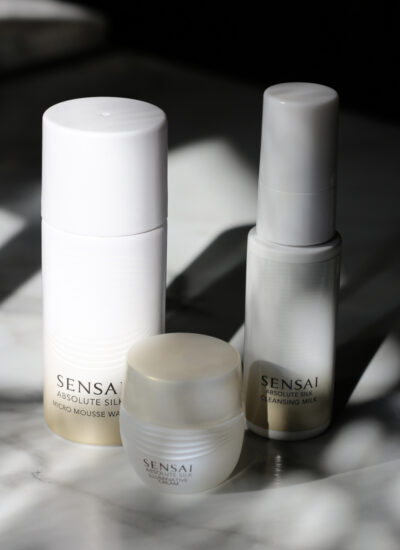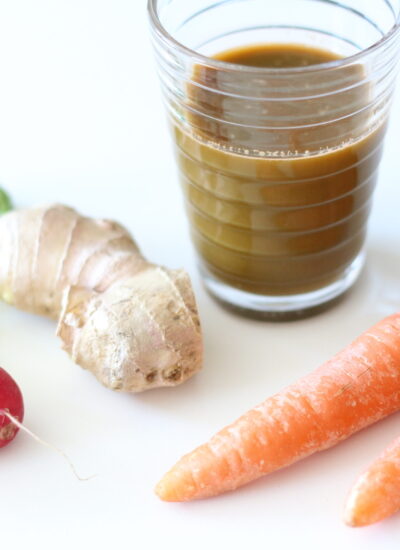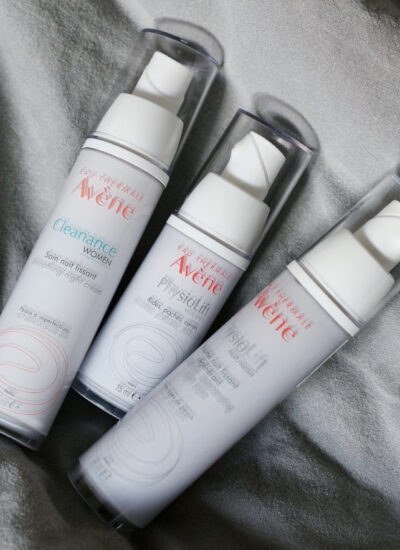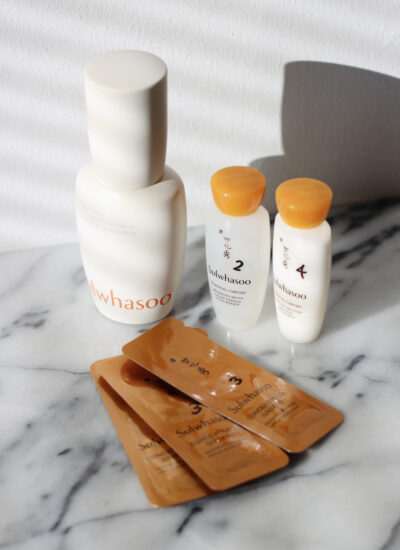My last beauty purchase includes these five oils that have the common thread of them all being high or slightly higher in Linoleic acid, which is supposed to be better for types with oily and problematic skin – but nonetheless, equally good for dry skin! My skin is probably the most normal now than it has ever been!
Fushi | Pomegranate Oil
Pomegranate seed oil is supposed to have healing properties with its unique punicic acid. I got to test it in Alterra Naturkosmetik’s oil blend, then at my mom’s place I tried the pure oil, and that’s when I decided to buy one for myself.
The pomegranate oil from Fushi differentiates a bit from the batch my mom had. Even though both are thick and difficult to pour out, the one from Fushi feels a bit thicker and doesn’t work fully on its own as the one my mom had. I almost wish it was a bit more fluid, for it’s no doubt a good face oil for the winter. It absorbs fast but leaves you with a protective outer layer which feels good to have when it’s minus degrees or windy – very good for dry skin types. Luckily only a small amount is needed in blends for it to still be beneficial. I’ve added it to my creams for added nourishment against dry skin and scar healing.
Some think it smells, but I wouldn’t say it’s that distinctive.
Comment on the cap: I don’t really have a better idea, but pomegranate oil is very viscous and therefore very hard to pour out. I’d suggest a squeezable container or no cap at all.
In addition, it would be a good idea to use a vaporizer like PAX 3 for dry skin as it keeps you hydrated throughout the day. This is because it is easily used on the go by being small and portable, so you can be looking after your skin even when you are not at home.
BENEFITS FOR THE SKIN
- Healing Qualities – Repairs wounds, cuts, pimples, cracks and other breakouts on the skin without leaving scars or marks behind.
- Anti-Aging – Punicic acid helps to increase the production, and reduce the breakdown of collagen fibers
- Improving Skin Tone – Vitamin C enhance skin elasticity, improves skin tone, slight lightening of hyperpigmentation, and balances the skin’s pH level.
Buy at Amazon
Fushi | Black Cumin Seed Oil
Hippocrates kind of proclaimed this oil to fix any issues, especially gut-related ones. I don’t remember how I came across this oil, but its history of healing and anti-inflammatory properties intrigued me.
If you’re sensitive to smell, then this is probably not your pick. Unlike Neem, this one smells more herbal, like pizza spice – a blend of thyme and oregano. It’s very light but potent. After a few weeks, I stopped using it alone directly on my face, there was just something that I can’t really put my finger on, it didn’t quite feel right on my skin and I suspected some irritation-pimples developing. Since then I’ve blended it out in my oil blends to incorporate it.
Comment on the cap: I like it, Black Seed oil is quite fluid, it’s also potent that treating it as an essential oil – counting drops – is favorable.
BENEFITS FOR THE SKIN
- Nourishing – Black cumin provides the skin with vitamins A, B, and C, along with minerals like calcium, potassium, magnesium, and zinc, that gives the skin what it needs to recover and repair itself.
- Keeps the skin infection-free – Calms inflammation, fights acne-causing bacteria and fungus, and helps with eczema and psoriasis.
- Fade dark spots – Can help in fading dark spots and old acne and other scars. Vitamin A and amino acids together with fatty acids help to encourage skin regeneration.
Find More Here
Other brands: Heritage Products | BEAUTYOILS.CO | Leven Rose | John Masters
Aura Cacia | Grape Seed Oil
After washing with thistle oil for a while I wanted to try something new. I had many tell me that they started cleansing with grape seed oil and had great results thanks to my post about the importance of fatty acids (it’s down on upgrade), and I felt a bit stupid to have not tried grape seed oil myself. Both oils are very priceworthy and high in linoleic acid, making them a good investment to cleanse with.
During winter, I’ve felt as if grape seed oil alone wasn’t enough moisture, and I’ve added a 50/50 blend of jojoba to cleanse with. You can buy a bigger batch of grape seed oil on iHerb, but I just wanted to try it out before getting myself invested. So far I’ve been liking this combo, especially with cleansing method #2.
On a note, I wonder about the importance of getting this oil organic? Considering grapes are highly sprayed.
Comment on the cap: I love the no-mess squeezable bottle.
BENEFITS FOR THE SKIN
- Anti-inflammatory properties – Great for treating skin conditions like acne.
- Skin tightening – Grape seed oil has astringent qualities that help tighten the skin and close up the pores, helping with avoiding clogging that can lead to pimples forming.
- High in Antioxidants – Helps with improving the elasticity of the skin, making fine lines less pronounced.
Find More Here
Other brands: NOW Foods | Beauty Aura | Naissance | Aura Cacia
Life Flo Health | Organic Kukui Nut Oil
I think I’ve found another favorite! I rarely get impressed by oils, to be honest, and I’m surprised by how much I liked this simple colorless nut oil that at first glance doesn’t look to do much.
Why Kukui? Because it sounds like an exotic travel destination… And more importantly: Kukui nut oil comes up when searching for something that nourishes and works for sensitive skin, treats acne, psoriasis and eczema, and that also absorbs readily into the skin – very important that it doesn’t “sit” on top of the skin like coconut oil. It’s non-comedogenic, has almost no odor, calms irritated skin, and feels like a silicone primer when put on the skin! I’m deeply impressed at how it can be so light but still, work for dry skin. It’s not so much an oil for healing, even though it, of course, has those properties like all other oils, but it’s better used as a base oil to substitute Jojoba oil if you’re having problems with it. It’s also slightly higher in linoleic acid, making it good for oily and problem prone skin types. And do you want to know what feels heavenly? Kukui and Hemp seed oil together! I say try it!
Comment on the cap: I wish it came with at least something to avoid dripping at the sides like olive oil bottles have. It’s quite difficult to pour out.
BENEFITS FOR THE SKIN
- Soothing – Kukui nut oil is non-comedogenic, it’s used to soothe sunburns, dry and damaged skin, wounds, chapped lips, and skin conditions like eczema, psoriasis, and acne.
- Easily absorbed – It’s high in Linoleic Acid which makes it easily absorbed by the deepest layers of the skin, and therefore also helps with very dry or damaged skin.
- Improves skin elasticity – Reducing the appearance of scars, stretch marks, crow’s feet, and wrinkles.
Find More Here
Other brands: Leven Rose | TeliaOils | Renewalize
Pai | Rosehip BioRegenerate Oil
After almost two years, I’m finally reunited with Pai’s rosehip oil! During this time I’ve tried rosehip oil from a bunch of other sources, but none has been as effective and light as this one, I guess it’s because it also includes the fruit extract. There’s a reason for this oil being highly nominated years in a row, it’s because you see immediate results in your complexion after just one day or two! It’s just so damn good. I will have to come back with a “top 5 favorite oils” soon ;)
BENEFITS FOR THE SKIN
- Skin rejuvenation – Vitamin A has the same effects as AHA’s and will gently exfoliate the skin, speeding up the healing process and leaving the skin soft and radiant.
- Pigment reduction – Vitamin C reduces the appearance of dark spots, aging spots, and hyperpigmentation, improving the skin tone and the quality of the skin.
- Balancing – It’s absorbed quickly and helps with neutralizing oil production in oily skin.
Find More Here
Other brands: Rhada Beauty | The Ordinary | LifeFlo | Aura Cacia | Trilogy















